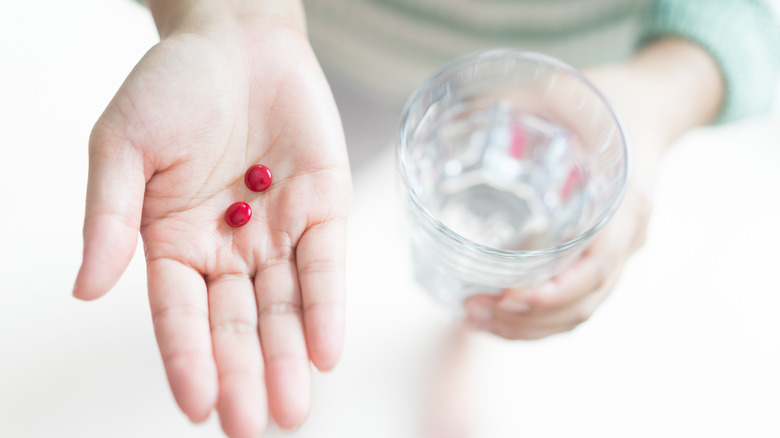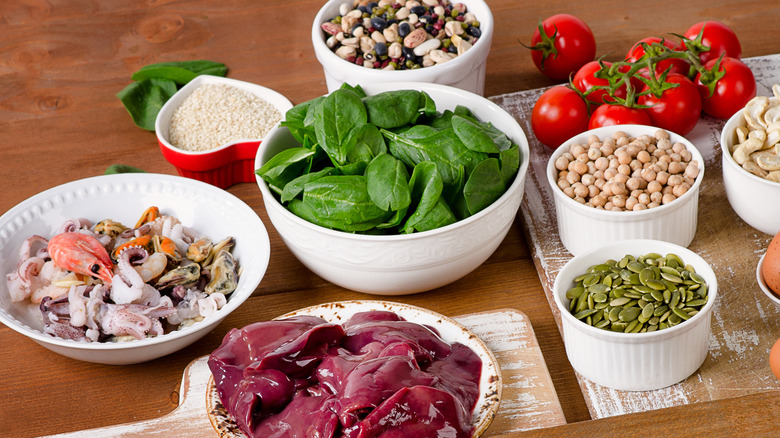Surprising Side Effects Of Taking Iron Supplements
If you're a woman who pays attention to the health and wellness space, you've probably considered taking an iron supplement at some point. Women are more prone to low iron levels, and while appropriate amounts of iron can be found in a healthy diet, some people do require added iron in supplement form. But it can have some surprising unpleasant side effects.
Most commonly, taking iron supplements can cause stomach troubles including constipation or diarrhea, as well as nausea and cramping. It's recommended that you take an iron supplement with food in order to alleviate these symptoms, but can make the iron supplement less effective. If you don't have an issue with side effects, take the supplement on an empty stomach. If you do have the stomach issues, try to avoid taking it with dairy, coffee, or tea, since they can counteract its effects.
There are other side benefits to taking an iron supplement, though: Researchers speculate that iron may improve memory and cognitive function, and could improve problems caused by restless leg syndrome. But generally, iron supplements are simply best used to treat low iron levels (via WebMD).
What are the harmful side effects of iron?
There are a wide range of uncomfortable and unpleasant symptoms that can come from taking an iron supplement. If you start to experience things like backache, muscle pain, dizziness, a fast heartbeat, fever with sweating, nausea, headaches, redness or hives, swelling in your mouth, trouble breathing, or stomach pain, seek medical help. Other signs to watch for that could indicate an iron overdose include diarrhea, sharp stomach pain, nausea, and fever, or in late stages, bluish lips and hands, seizures, clammy skin, and a weak, fast heartbeat. Again, don't wait for them to go away, seek medical help as soon as possible (via the Mayo Clinic).
You can opt to focus on whole food iron sources rather than a supplement if you suffer from some of the negative side effects. For women aged 19 to 50, the recommended amount of iron needed per day is 14.8 milligrams, while for men over 18, the recommendation is only 8.7 milligrams per day. Consider adding liver, red meat, kidney beans, chickpeas, nuts, dried fruit, or fortified grains to your diet instead, and use a food tracker to check that you're getting adequate amounts (via UK National Health Services).


